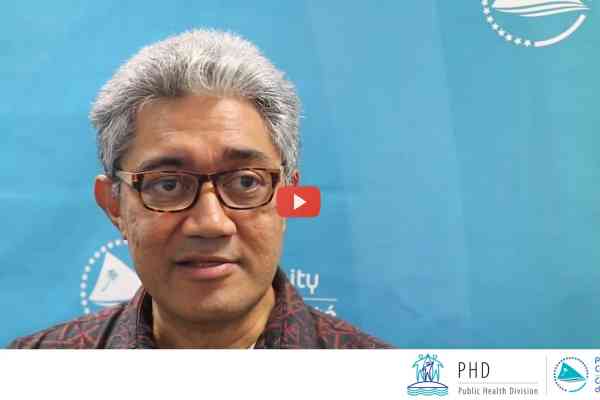Health experts were quick to identify that persons living with non-communicable diseases (NCDs) such as diabetes, heart diseases, hypertension, chronic lung diseases and cancers were more vulnerable to becoming severely ill with COVID-19.
According to the WHO global health survey in 2016, 71% of deaths globally were due to NCDs. In the Pacific, NCDs are the leading case of deaths accounting for 75% of mortality. This is worrying as the Pacific represents a region that is vulnerable to the current health crisis.
Pacific health facilities are placed under more pressure when there is a health crisis and routine health clinics face disruptions. Pacific countries can achieve the ‘healthy islands vision’ only if there is a coordinated response from countries and development partners addressing NCDs and COVID-19 simultaneously.
While Pacific leaders have committed to the implementation of the Pacific NCD Roadmap recommendations at the reginal level, now is a critical time to strengthen national action. For instance, the Pacific Monitoring Alliance for NCD Action (MANA) Dashboard indicates gaps with the NCD-related policy and legislations that can be addressed as nations continue to strengthen their response and preparedness for COVID-19.
This includes strengthening fiscal policies and legislations to control the use of unhealthy products such as tobacco, alcohol and sugar-sweetened beverages (SSBs) and promote healthier food options; promote physical activity, programs and services that promote primary and secondary prevention of NCDs.
Dr Si Thu Win Tin, team leader for the Public Health Division’s (PHD) Non Communicable Diseases Prevention and Control Programme at SPC says, “This is a critical time for governments, development partners and civil societies across the Pacific to come together to fight NCDs and COVID-19. All measures to enable countries to address NCDs better will also reduce the potential harm from COVID-19”.
Pacific countries have been supported to respond to COVID-19 in the past six months in all aspects including managing vulnerable populations such as those living with NCDs. This support is through the WHO led Pacific COVID-19 Joint Incident Management Team (JIMT), which is comprised of several key partners such as the Australian Department of Foreign Affairs and Trade (DFAT), the New Zealand Ministry of Foreign Affairs and Trade (MFAT), the United Nations Children’s Fund (UNICEF), the Pacific Islands Health Officer’s Association (PIHOA) and the Pacific Community (SPC). The purpose of JIMT is to ensure partners coordinate their activities to best leverage their respective resources and capacities to help ensure the Pacific countries receive the guidance and supplies needed to strengthen their health emergency preparedness.
SPC recognizes that it is important for the Pacific to reinforce the multi-sectoral response to NCDs so that the impact of COVID-19 is lessened and to strengthen preparedness for potential emerging health crisis or re-emerging diseases in the future.

